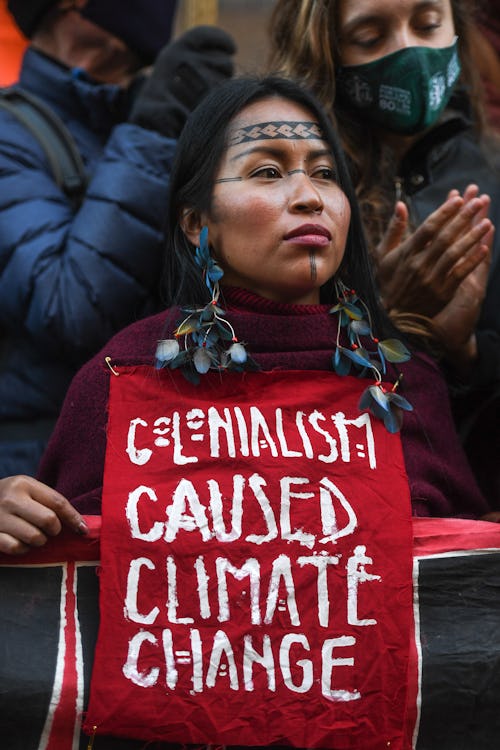Big oil is destroying Indigenous women’s lives
A memorial at the COP26 Summit brought attention to the violence that Indigenous women, queer, and two-spirit people face at the hands of big oil and mining industries

The COP26 summit, U.N.’s global climate change conference, started in Glasgow almost two weeks ago. Since then, activists have been hard at work behind the barbed wire of the official conference — marching, amplifying underheard voices, and sharing stories from the frontlines of climate disaster around the world. The protest on Tuesday was a poignant memorial, led by Indigenous women from around the world, enacted to bring attention to the violence that Indigenous women, queer, transgender, and two-spirit people face and at the hands of big oil and mining industries.
“The oil and gas industry, the polluters, those who are mining and destroying our Mother Earth, we hold them accountable for the harms that they are doing our homeland, to our earth and to the women of our communities,” Bineshi Albert, a protestor from the Yucci and Anishinaabe communities, told The Washington Post. “We’re here to say: not one more.” These activists are voicing the fact that fossil fuel extraction has grave consequences for Native women and children, who face increased rates of sexual abuse, sex trafficking, and domestic abuse in places where big oil and mining companies set up shop.
Not only does the ecological impact of climate change have the most impact on already marginalized groups — Indigenous women, queer, transgender, and two-spirit people — they also face new threats when extractive industries construct “man camps” to house workers. These industry worksites don’t just defile the land, they also create a trail of missing and murdered women. Tribal authorities often don’t have the jurisdiction to investigate and prosecute these crimes, and activists are appealing to COP26 attendees — and the world that is watching the summit — to do something about it.
“They just look at us as disposable,” Casey Camp-Horinek, Ponca Nation’s environmental ambassador, told The Washington Post. But far from being disposable, Indigenous women are in fact leading the fight against climate disaster even as they are personally victimized by the industries responsible. “Indigenous women are the primary line of defense against the violence perpetuated by extractive industries on our territories,” Mireya Gualinga, member of the government advisory board of the Kichwa Community of Sarayaku, Ecuador, told The Washington Post.
These warriors are fully aware that every time they raise their voices to speak, they are putting themselves at risk. “We defend with our own bodies the health of our families, communities and lands, and we fight every day against the colonialist exploitation of multinationals from the global North,” Gualinga said.
But while these brave activists are putting their own bodies and welfare on the line, they are not doing it for personal gain. They are working on behalf of all of us, especially those most silenced by the status quo. “ I woke up knowing this event was coming and asked for strength to tell you about the ones just in our territory alone that are never cared for,” Camp-Horinek said.